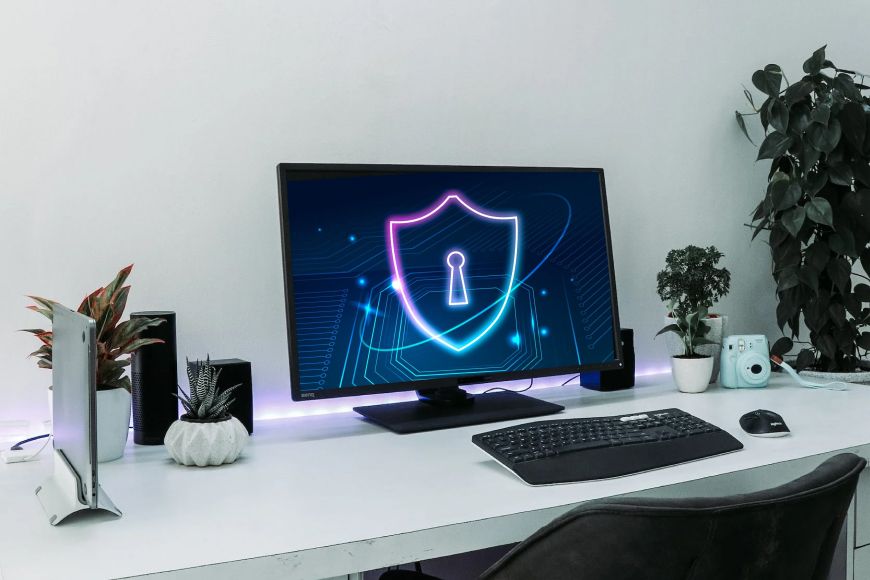Advancements in consumer technologies in the last few years often lead us to think our devices have now become ‘smart’ and ‘secure.’ While the former may be true to some extent, how can we be so sure about the latter? Especially with the constant reminders of hacks and security incidents taking place all over the world, can we say for sure that our devices are secure enough?
From different types of viruses to ransomware, a variety of cybersecurity attacks constantly target our day-to-day computer systems. We do understand your dilemma. On the one hand, Microsoft says Windows 11 is packed with so many security features, but on the other, you will find many cybersecurity experts and companies raising alarms and recommending third-party antivirus apps for additional security.
We aren’t saying you should blindly follow what these companies say, but you should weigh your options rationally. There are a handful of factors one should consider when deciding whether you require an antivirus program for your Windows machine or not.
Different Users, Different Security Needs
Let’s say you use your computer for basic tasks like casual web browsing or creating and storing documents offline. In such cases, your exposure to any significant threats is fairly low. So, you may believe that you probably do not need an antivirus program, especially if you follow basic security hygiene. But how often is that the case?
For example, it is possible that your work requires you to download and install some third-party software applications from less secure, untrustworthy app stores. Similarly, you may have to browse less secure ‘HTTP’ websites, exposing visitors to all kinds of dangers (harmful scripts and programs downloading in the background, phishing scripts, and whatnot!) due to a lack of a secure SSL certificate. In situations like this, it makes sense to safeguard your computer with an additional layer of security in the form of an antivirus.
But Windows 11 Has A Built-in Antivirus Program
For those of you who do not know, Windows 11 comes with a built-in security and antivirus program called Windows Security (also known as Microsoft Defender in previous iterations), which Microsoft claims can protect your Windows computer from system and network-level threats. For instance, if you go to the “Virus and threat protection” section of the Windows Security module, you can see the current system status and carry out manual scans for any potential security problems.
You can also make use of parental control features, such as the ability to restrict screen time for your children or prevent them from accessing less secure, harmful websites. While Windows Security does a decent job when it comes to protecting your PC from common or basic threats, it does not mean that it is without limitations.
Limitations of Windows Security: And Why You Need Another Antivirus
All of us exhibit different usage patterns with our devices. While some may have a lower exposure to malware such as viruses, spyware, and ransomware, others might have a high risk of exposure to cybersecurity problems. If you happen to be on the risky side, the following factors are extremely important to consider.
Malware Detection
One reason to consider upgrading to a dedicated anti-malware software like Malwarebytes or Kaspersky is better protection from zero-day malware threats that have not been addressed or neutralized by cybersecurity experts. Furthermore, they also rigorously maintain and update their detection systems to cover as much of the cybersecurity threat landscape as possible in order to protect users against all types of malware attacks.
This level of advanced, real-time protection is not always possible with a default program like Windows Security, which mostly relies on periodic operating system (OS) level updates and security patches, which is not enough to protect users against vulnerabilities that have been exploited by hackers. This often leads to Windows Security taking more time to detect and remove potential security threats from your PC.
Additional Features
The lack of additional security features like a password manager and integrated VPN solutions in Windows Security is another reason why you should probably consider switching to a better option. Many antivirus programs like Bitdefender offer anti-theft protection, which lets you track stolen/lost devices and password management options. These features help you securely store your passwords or browse the internet without worrying about exposing your data or digital identity to the unknown.
Resource Consumption
While Windows Security can scan your PC for threats, it does not always translate into a great experience when you enable real-time protection. Often, the default real-time malware scanning engine in Windows consumes a lot of system resources because the integrated system is also taking care of other core OS-level tasks in the background. This can slow down your PC because the software is not optimized for advanced, real-time threat detection.
This is rarely the case with third-party applications. In fact, many antivirus programs like Avast and McAfee are optimized in such a way that they do not overuse Windows system resources, making it easier for users to stay safe without slowing their machines down.
A Dedicated User Interface
The lack of a dedicated user interface (UI) can be an issue. For instance, if you want to proactively monitor the quarantine folder or scan specific folders on your PC, it makes sense to have a separate interface, which is not the case with Windows Security. Third-party antivirus programs like Norton Security and ESET have a dedicated UI for managing different things. Even better, you can access different aspects of your digital security from a single dashboard.
Wrapping Up
Coming back to the question if you still need a dedicated antivirus for your Windows machine, the answer is Yes! While sticking to the built-in security suite on Windows 11 is a good start, it is not at the same level as the advanced protection offered by third-party programs. You may have to make some upfront investment, but you can stay secure and save you a lot of trouble and money in the long run.
Even better, you have free and paid options both. You can find many free-to-use antivirus programs for Windows from reliable brands like Avast or Bitdefender. While these are not as feature-packed as the paid options, you get more features and control than what you can expect from Windows Security. Depending on your budget and security needs, you can choose between free and paid antivirus options.




